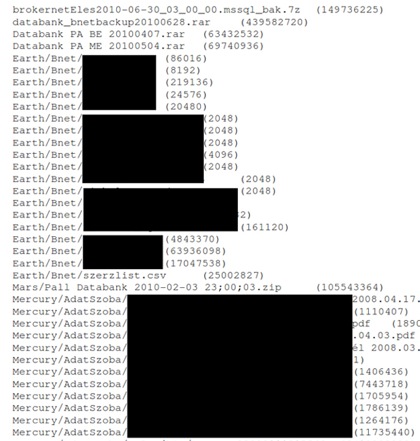Not long after the launch of the first Hungarian whistleblower website police started an investigation against its editor-in-chief. Reason: “keeping the confidentiality of informants is perjury, or even aiding or abetting in the blackmailing.”
Atlatszo.hu is a watchdog NGO and online magazine for investigative journalism started in July 2011 by Tamás Bodoky and other pro-transparency and anti-corruption journalists, and lawyers, IT-specialists, academics, independent experts. (The meaning of the word ‘átlátszó’ is ‘transparent’ in Hungarian.)
A main goal of Atlatszo.hu is to develop and promote tools supporting anonymous whistleblowing. A feature they call ‘MagyarLeaks’. Mr Bodoky says this is not only to protect the whistleblowers but the journalists. One of the first posts presented a leaked document about an alleged hacker attack in 2010 [HUN] on the database of Brokernet, Hungary’s leading independent financial advisory group. The publication first lead to a witness hearing by the police based upon the media law of Hungary which came into effect by January 1, 2011. The widely discussed set of laws included a paragraph about journalists being obliged to reveal the identity of their whistleblowers.
From Act CIV of 2010 on the freedom of the press and the fundamental rules on media content, Article 6:
(1) The media content provider and any person employed by or engaged in any other work-related legal relationship by the media content provider shall have the right to keep secret the identity of its informant (hereinafter referred to as: journalists’ source). The right to keep such data confidential shall not include the protection of journalists’ sources disclosing qualified data unlawfully.
[…]
(3) In exceptionally justified cases, courts or authorities may, in order to protect national security and public order or to uncover or prevent criminal acts, oblige the media service provider and any person employed by or engaged in any other workrelated legal relationship by the media content provider to reveal the identity of the journalists’ sources.
Atlatszo.hu filed a complaint against the investigation and the seizure of Mr Bodoky’s hard drive. But the editor-in-chief says in case the Public Prosecution Office finds that the journalist committed a crime by keeping the confidentiality of his informant, the only solution is if the journalist just doesn’t know where the information comes from. The Hungarian journalist calls this case a test of the Hungarian media law. In August the Public Prosecution dismissed the complaint, the motion is still being processed by the Pest Central District Court of Justice. If the law doesn’t protect journalists Atlatszo.hu is planning to bring it to Strasbourg.
Those who joined Atlatszo.hu work in groups of expertise and share the work of processing the leaked informations and documents. They publish relevant findings on Atlatszo.hu website in Hungarian and English. The site also promotes freedom of information in Hungary. In the long term their goal is to set up a legal clinic to file freedom of information requests, and commence freedom of information lawsuits in cases where the requests are refused.
According to Mr Bodoky their biggest barrier in operation is the lack of money. Though they have collected ca. 9000 USD from private donations (HUN) that is enough only to finance their basic needs and doesn’t allow them to pay even a small amount of honorarium to the professionals who work with them. Atlatszo.hu has received a lot of application from volunteers and in the future they would like to involve journalism students in their work. But the leader of the organization is certain if the fundraising problems are not solved, they will have to continue running their crowdsource investigative journalism project as a spare time blog.
Note: The author of this post is a volunteer with the presented project.




